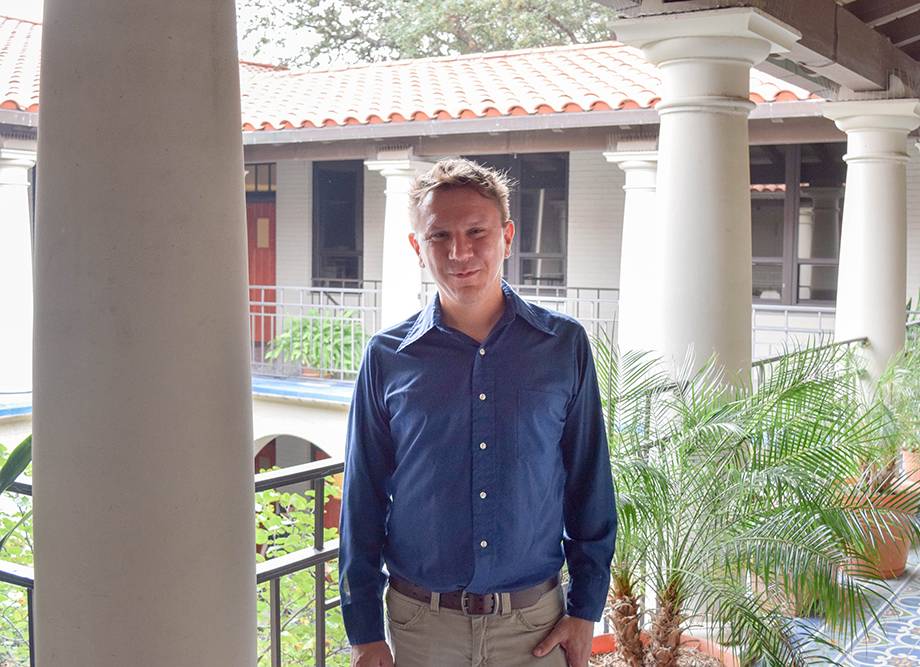Thomas Alter
 Assistant Professor
Assistant Professor
Office: TMH 221
Email: ta1066@txstate.edu
Phone: 512.245.2142
Educational Background:
Ph.D. - University of Illinois at Chicago
M.A. - Texas State University
B.A. Indiana University
Thomas Alter is a historian of the United States and Texas who specializes in transnational approaches to race, labor, capitalism, and protest movements.
His book, Toward a Cooperative Commonwealth: The Transplanted Roots of Farmer-Labor Radicalism in Texas (University of Illinois Press, 2022) uses three generations of a German-Texan family to explore the evolution and continuity of agrarian radicalism in the US and transnational influences on this tradition from the 1848 German Revolution, the Mexican Revolution, Irish republicanism, and the Bolshevik Revolution.
In the book, he argues that many of the organizations, parties, and unions of workers and farmers from the 1870s-1920s constituted a farmer-labor bloc, which in working independently of the two-party system moved US political culture to the left, making possible the reforms of the Progressive and New Deal eras.
He is currently working on a project that traces the rise of Texas as an international political and economic power from the 1890s-1920s and another project on the early 1980s Austin punk scene.
He teaches classes on the US, Texas, labor and working class movements.
Select Publications
“From the Copper-Colored Sons of Montezuma to Comrade Pancho Villa: The Radicalizing Effect of Mexican Revolutionaries on the Texas Socialist Party, 1910-1917,” LABOR: Studies in Working-Class History, Vol. 12, No. 4 (Winter 2015), 83-109.
“‘It Felt Like Community’: Social Movement Unionism and the Chicago Teachers Union Strike of 2012,” LABOR: Studies in Working-Class History, Vol. 10, No. 3 (Fall 2013), 11-25.
“Occupy and Labor: What Role for Historians?,” Labor and Working-Class History Association Newsletter, Spring/Summer 2012.
He also has book reviews published in Enterprise & Society: The International Journal of Business History, Southwestern Historical Quarterly, and the Western Historical Quarterly.
